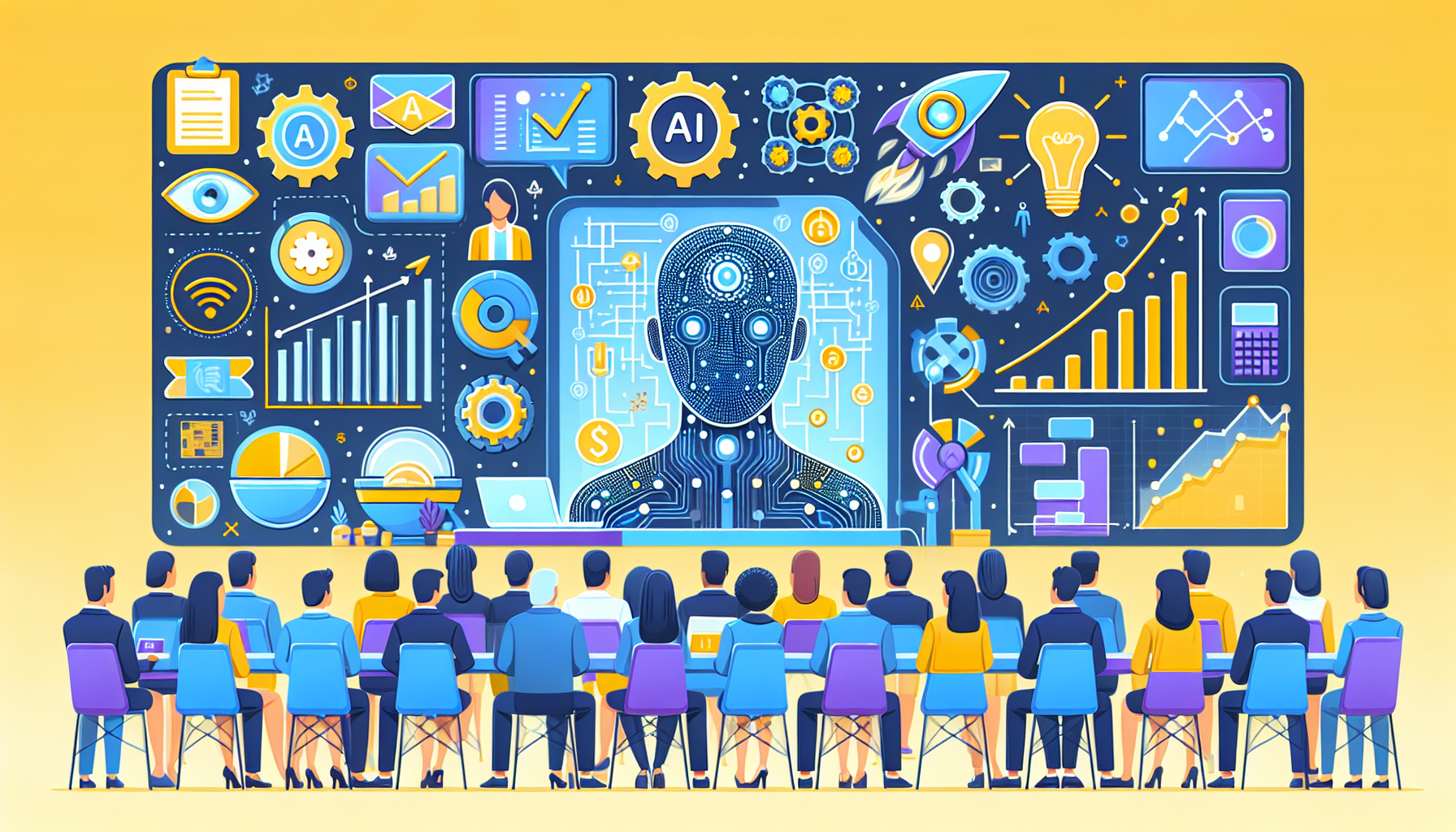Success Stories: Entrepreneurs Leveraging AI to Compete in Their Markets
1. The Rise of AI in Entrepreneurship
Artificial intelligence (AI) has become a cornerstone for modern entrepreneurship. The technology allows startups and established companies alike to optimize operations, enhance customer experience, and drive innovation. As industries evolve, the competitive landscape demands agility and technological prowess. Entrepreneurs are increasingly leveraging AI to carve out unique value propositions, streamline processes, and anticipate client needs.
2. Transforming Retail with AI: Stitch Fix
Stitch Fix, an online personal styling service, utilizes AI to enhance its customer experience drastically. By analyzing customer preferences, body types, and fashion trends, Stitch Fix creates a personalized shopping experience. The AI algorithms suggest clothing selections based on data collected from user interactions and feedback. By integrating predictive analytics, the company reduces excess inventory and improves customer satisfaction. This innovative approach propelled Stitch Fix’s market share, attracting millions of customers and revolutionizing how fashion retail operates.
3. AI in Hospitality: OYO Rooms
OYO Rooms, the Indian hospitality startup, has leveraged AI to analyze market demand, streamline pricing, and enhance operational efficiency. By employing machine learning algorithms, OYO determines optimal pricing strategies for hotels based on data such as location, seasonality, and user feedback. This data-driven approach has allowed OYO to expand rapidly across locations while maintaining competitive pricing. AI-enabled chatbots facilitate communication with customers, addressing queries and providing support instantly. This integration of technology not only improves guest experiences but also solidifies OYO’s position in a crowded market.
4. The Food Industry: Ordermark
Ordermark is a food-tech startup that optimizes the delivery process for restaurants using AI. By consolidating online orders from various delivery platforms into one streamlined system, Ordermark helps restaurants reduce operational costs while expanding their market reach. The AI algorithms analyze order patterns, customer preferences, and peak times, enabling restaurants to manage kitchen labor effectively. This efficiency leads to improved customer service and an increase in orders. Ordermark’s innovative approach has positioned it as a leader in the competitive food delivery space.
5. Real Estate Revolution: Zillow
Real estate has traditionally required significant human interaction and expertise in property valuation. Zillow has transformed this landscape by utilizing AI to provide automated valuation models (AVMs). By analyzing millions of property records and market trends, Zillow can predict property values with remarkable accuracy. The company’s integration of AI facilitates home buying and selling, making the process seamless and more transparent for consumers. With features like Zestimate, Zillow has positioned itself as a trusted resource in an otherwise opaque industry, enabling users to access real-time data and insights.
6. Health Tech Innovation: Zebra Medical Vision
Zebra Medical Vision is a startup focused on leveraging AI to enhance diagnostic imaging in healthcare. By applying deep learning technology to medical images, Zebra can detect a variety of diseases at an early stage. This proactive approach not only improves patient outcomes but also reduces healthcare costs by minimizing the need for more invasive procedures. Zebra’s AI algorithms have been validated against vast datasets, making their solutions reliable and innovative. By providing healthcare providers with accurate, fast diagnostics, Zebra Medical Vision has established itself as a key player in the healthcare sector.
7. Enhancing Marketing Strategies: HubSpot
HubSpot, a leading inbound marketing platform, integrates AI to help businesses automate their marketing efforts. With AI-driven tools that analyze user behavior, HubSpot enables companies to tailor their marketing strategies according to consumer preferences. AI helps predict which content will resonate with specific audience segments, allowing for a more targeted approach. By enhancing lead generation and improving conversion rates, HubSpot has empowered countless businesses to thrive in a competitive environment.
8. Financial Services: Clara Analytics
Clara Analytics utilizes AI to enhance underwriting and claims processing in the insurance industry. By employing natural language processing (NLP) and machine learning, Clara analyzes vast amounts of unstructured claims data, enabling insurers to make faster and more informed decisions. The AI system can identify potential fraud and assess risk levels, thereby streamlining operations and cutting costs. Clara’s implementation of AI has revolutionized how insurance companies operate, offering a competitive edge in a traditionally slow-moving market.
9. The Automotive Industry: Tesla
Tesla’s integration of AI is transforming the automotive landscape. The company employs advanced AI systems in its autonomous driving technology, leveraging neural networks to process real-time data from vehicle sensors. This capability allows Tesla vehicles to learn from vast amounts of driving data, enhancing overall safety and efficiency. Tesla’s focus on AI-driven innovation has established it as a frontrunner in the electric vehicle market, compelling traditional automotive manufacturers to adapt quickly to maintain competitiveness.
10. AI-Powered Content Creation: Jarvis.ai
Jarvis.ai, known for its AI content generation capabilities, has reshaped how businesses create marketing content. By utilizing natural language processing and machine learning, Jarvis aids marketers in generating high-quality blog posts, social media updates, and product descriptions. This automation significantly reduces content creation time, enabling businesses to maintain consistency in their messaging and branding. By offering a solution that enhances creativity while improving productivity, Jarvis.ai has positioned itself as a vital tool for marketers in diverse sectors.
11. Personalized Learning in Education: Squirrel AI
Squirrel AI is reshaping the education sector with its AI-driven adaptive learning platform. The system assesses students’ learning styles and progress, adjusting the curriculum to provide personalized learning experiences. By harnessing machine learning, Squirrel can identify gaps in knowledge and tailor exercises accordingly. This innovation not only boosts student engagement but also improves retention rates. Squirrel AI’s commitment to redefining educational experiences has garnered attention and investment, positioning it as a leader in EdTech.
12. Conclusion of Case Studies
These success stories exemplify how entrepreneurs are leveraging AI to transform their respective industries. By harnessing the power of AI, these businesses are not just surviving but thriving in competitive markets. As technology continues to evolve, the opportunities for innovation will only expand, presenting further prospects for entrepreneurs willing to embrace change and invest in AI-driven solutions.


